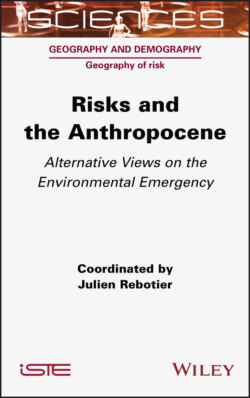Читать книгу Risks and the Anthropocene - Julien Rebotier - Страница 22
I.4. Insights on risks in the Anthropocene era
ОглавлениеBased on the Anthropocene moment, nine chapters have been proposed for the study and management of risks by providing elements of response in three parts, posed as three questions. The first part, “Toward new risks?”, discusses types of risk (coastal risks, fires, urban climate) that have emerged or been renewed by the Anthropocene context. The second part, “Recompositions for the study and management of risks?”, evaluates what the Anthropocene moment is doing to the classic themes of risk studies: the risk society, the management of disasters or prevention policies that are always the mark of attributes of power. The third part, “What consequences for a changing modernity?”, takes a step back from the Anthropocene moment and draws the (at least potential) contours of future worlds. It includes an ethnography of flood prediction systems in Europe, an analysis of the shift to a world of uncertainty and a practical philosophical examination of an old challenge for action: the necessary action in a radically uncertain world.
Each contribution is positioned in its own way around common problematic orientations, recalled by this general introduction. It is possible to navigate between the autonomous chapters because of explicit cross-references throughout the text and to the general index of the book.
These reflections all feed questioning in the social sciences. They bring together authors who, for the most part, are involved in risk studies. At the heart of the book, highlighted by reflections on the Anthropocene, we find risks as research objects, as supports and markers of the social and as modalities and manifestations of interactions between societies and environments. The general perspective assumes a form of déjà vu by being part of several decades of social science research on risks. The notion of the Anthropocene, despite its success, should neither be used to neglect the critical knowledge already produced on risks, their study and their management, nor to elude the obstacles already identified. The introduction of the notion of the Anthropocene into the debate on risk thus serves as a revelation of certain salient points, or as a moment of reference for drawing up forward-looking assessments.
